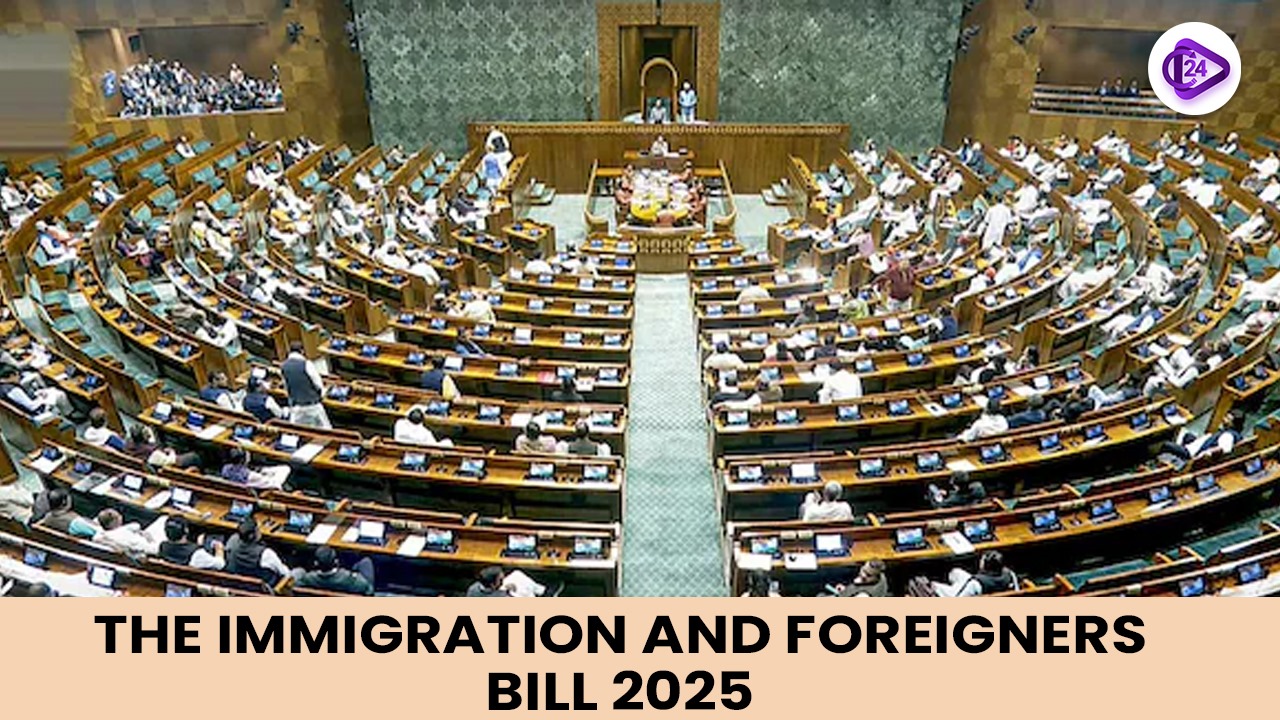
The Immigration and Foreigners Bill 2025 will arrive at the second part of the Budget session for presentation by the Union Ministry of Home Affairs to modernize Indian regulations regarding immigration and foreign movement. The Bill integrates various immigration rules concerning passports together with visa policies as well as foreign registration requirements and immigration protocols under one system. The Immigration and Foreigners Bill 2025 contains three main elements that establish harsher punishments for document falsification, provide authorization to deny entry for national security reasons and public health concerns and mandate educational bodies along with accommodation providers to maintain foreign national registration systems. The immigration system will receive modernization improvements while authorities will receive authority to enforce severe punishment through both fines and prison terms when violations occur.
Context:
-
The Immigration and Foreigners Bill 2025 will be introduced by the Union Ministry of Home Affairs (MHA) during the second part of the Budget session.
-
This bill seeks to replace four outdated immigration laws together with striking movement regulations for foreigners because it intends to modernize the system.
Contours of the Immigration and Foreigners Bill, 2025
-
Repeal of Existing Laws:
-
The legislative bill seeks to do away with four retroactive laws that include the Foreigners Act, 1946, Passport (Entry into India) Act, 1920, Registration of Foreigners Act, 1939, and Immigration (Carriers’ Liability) Act, 2000.
-
A new contemporary system unifies disparate laws to simplify the processing of immigration and foreign movement.
-
-
Streamlining Immigration Procedures:
-
One unified document under the bill unifies multiple sections which address passport oversight and visa management and foreigners’ record keeping and immigration official responsibilities.
-
Such coordination simplifies the immigration process which becomes more efficient by reducing duplicated efforts.
-
-
Security and National Interests:
-
Certain particular grounds including protection of national security as well as preservation of sovereignty and protection of public health and foreign relations form the basis for denying entry or residency.
-
Decisions regarding foreigners only proceed from solid legal bases to ensure their validity.
-
-
Penal Provisions:
-
The law now imposes 5 years imprisonment and a fine of ₹5 lakh on people whose presence violates the immigration regulations in India.
-
The usage or making of counterfeit travel documents pays up to seven years behind bars with a maximum fine amounting to ₹10 lakh.
-
-
Responsibilities of Institutions:
-
Authorities require Educational institutions together with hospitals and accommodation providers such as hotels and guest houses to perform foreign national registration and transfer information to authorities.
-
The system enables better monitoring of foreign nationals who stay in India.
-
Obligations for Admitting Foreign Nationals
-
Educational Institutions and Hospitals:
-
Institutions operating universities along with colleges and medical facilities need to accept foreign students then register these students with proper authorities for monitoring purposes.
-
-
Accommodation Providers:
-
Hotels alongside guest houses together with accommodation establishments need to obtain passport information from non-Indian visitors for reporting purposes to local authorities.
-
-
Compliance with Registration:
-
Registration and reporting standards apply to foreign citizens for staying in the country and fulfilling their purposes of visit.
-
The possession of counterfeit travel documents or their supply to others will result in imprisonment.
-
Penalizing the Use or Supply of Forged Travel Documents
-
Imprisonment for Forged Documents:
-
The offense of using forged travel documents carries imprisonment penalties between two to seven years and additional penalties for their supply.
-
The usage of forged passports to cross into India can lead to two to seven years of imprisonment according to the law.
-
-
Imposition of Hefty Fines:
-
Public officials responsible for travel document violations will receive penalties of ₹1 lakh minimum and may reach up to ₹10 lakh based on the offense severity.
-
A travel agent operating without proper authorization will be subject to maximum possible fines reaching ₹10 lakh.
-
-
Criminalizing Fraudulent Use:
-
The use of passports or visas in fraudulent entry attempts into India will result in severe punishment.
-
A person who enters India with false visa documentation may receive up to seven years of prison term combined with financial penalties.
-
-
Severe Penalties for Large-Scale Document Fraud:
-
Forces that create forged documents on a large scale will endure multiple years behind bars while also paying extreme financial penalties.
-
The production of fake tourist visas for illegal immigration purposes will result in severe penalties for the entire network.
-
-
Deterrence for Document Fraud:
-
The proposed document fraud legislation uses serious prison time combined with heavy financial penalties in order to create a strong warning against unlawful methods.
-
Way Forward
-
Enhance Enforcement and Training:
-
The detection of counterfeit documents and effective enforcement of registration needs require special training for immigration authorities together with law enforcement staff.
-
All educational settings together with accommodation providers need specialized training to verify compliance with this legislation.
-
-
Promote Public Awareness and International Cooperation:
-
Awareness campaigns focused on foreign nationals and travel agents about the penalties from document forgery should start to prevent illegal activity.
-
The exchange of vital information between international entities will serve as an essential method to block fraudulent document issue practices
-



 Pandit Chatur Lal: The Pioneer of Tabla in the West and His Centenary Commemoration
Pandit Chatur Lal: The Pioneer of Tabla in the West and His Centenary Commemoration Meghalaya to Host Strawberry Festival on 2-3 May, 2025 to boost agriculture
Meghalaya to Host Strawberry Festival on 2-3 May, 2025 to boost agriculture New NCERT Class 7 Social Science Textbook: Consolidated Format and Focus on Ancient India
New NCERT Class 7 Social Science Textbook: Consolidated Format and Focus on Ancient India India Takes Major Strides Toward Malaria Elimination on World Malaria Day 2025
India Takes Major Strides Toward Malaria Elimination on World Malaria Day 2025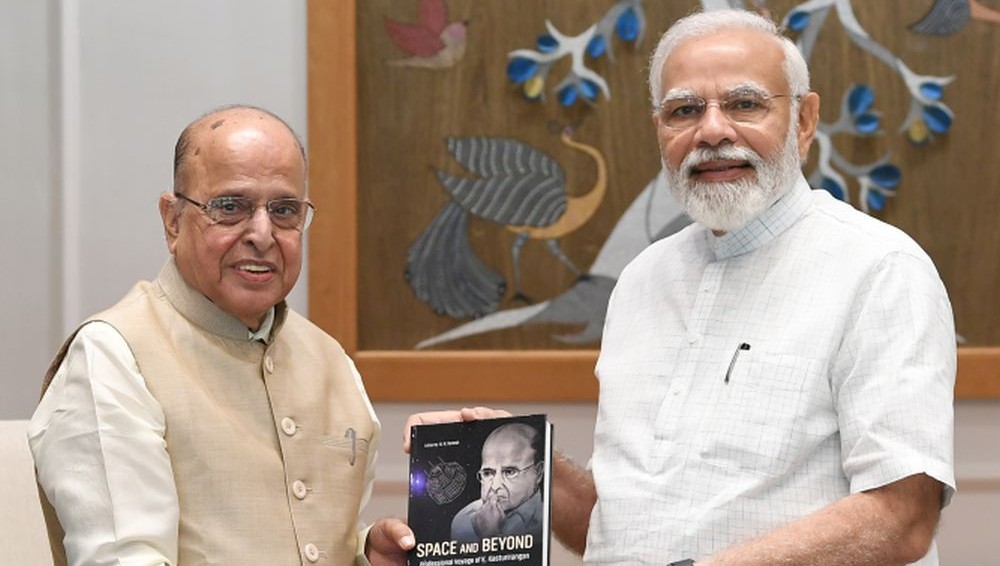 Former ISRO Chairman Dr. K. Kasturirangan Passes Away at 84
Former ISRO Chairman Dr. K. Kasturirangan Passes Away at 84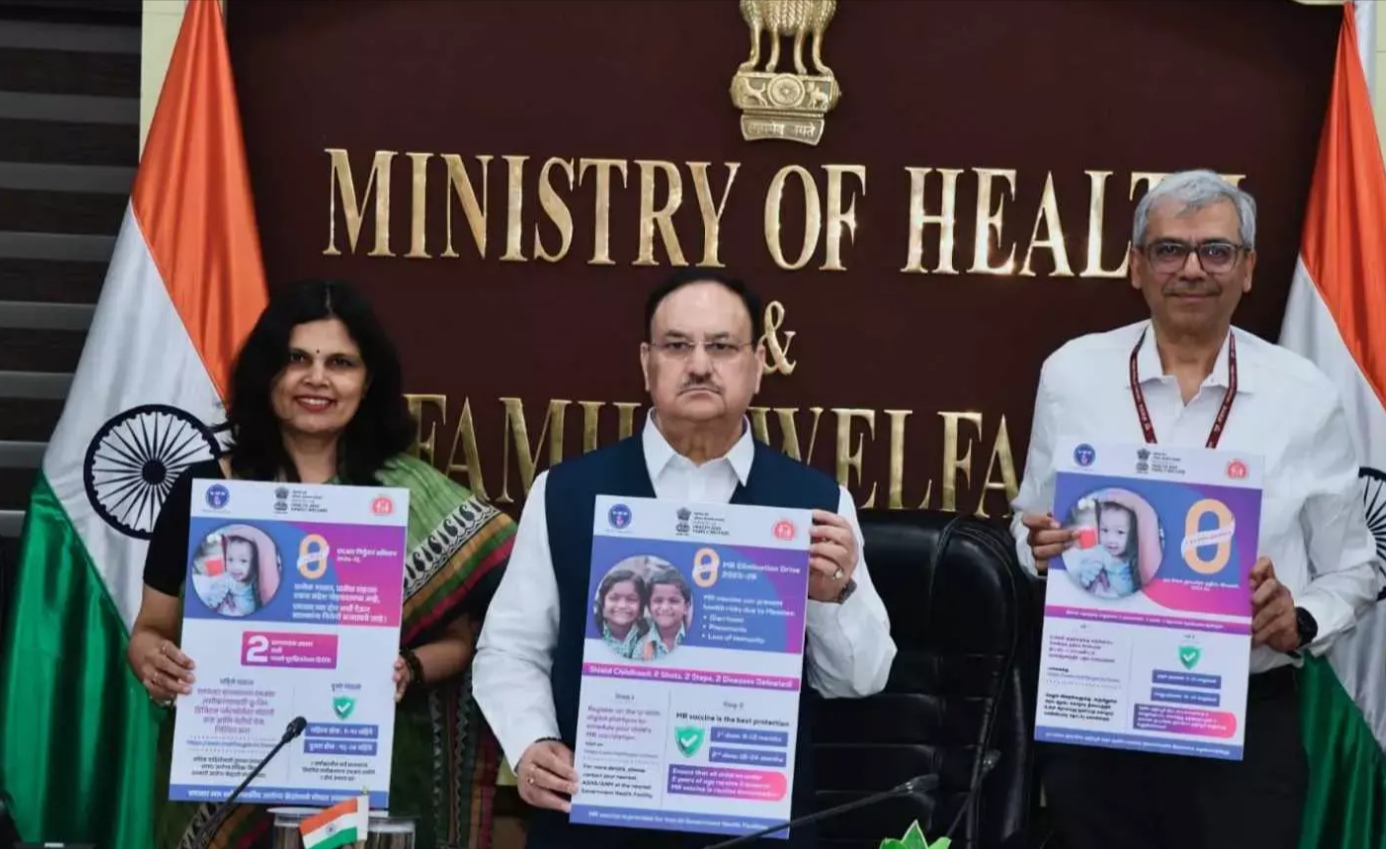 India Launches National ‘Zero Measles-Rubella Elimination Campaign 2025–26 with a Target to Eliminat
India Launches National ‘Zero Measles-Rubella Elimination Campaign 2025–26 with a Target to Eliminat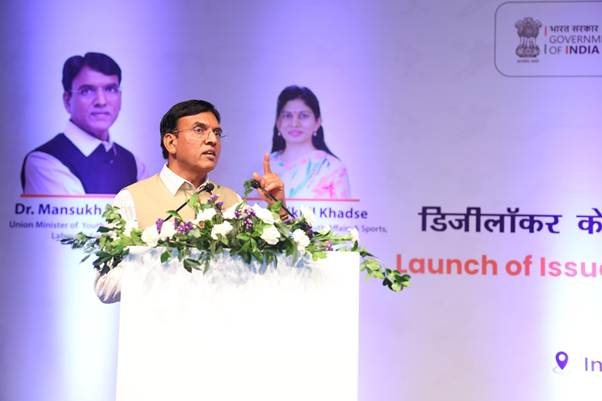 Union Minister Dr. Mansukh Mandaviya Launches Issuance of Sports Certificates via DigiLocker and Ina
Union Minister Dr. Mansukh Mandaviya Launches Issuance of Sports Certificates via DigiLocker and Ina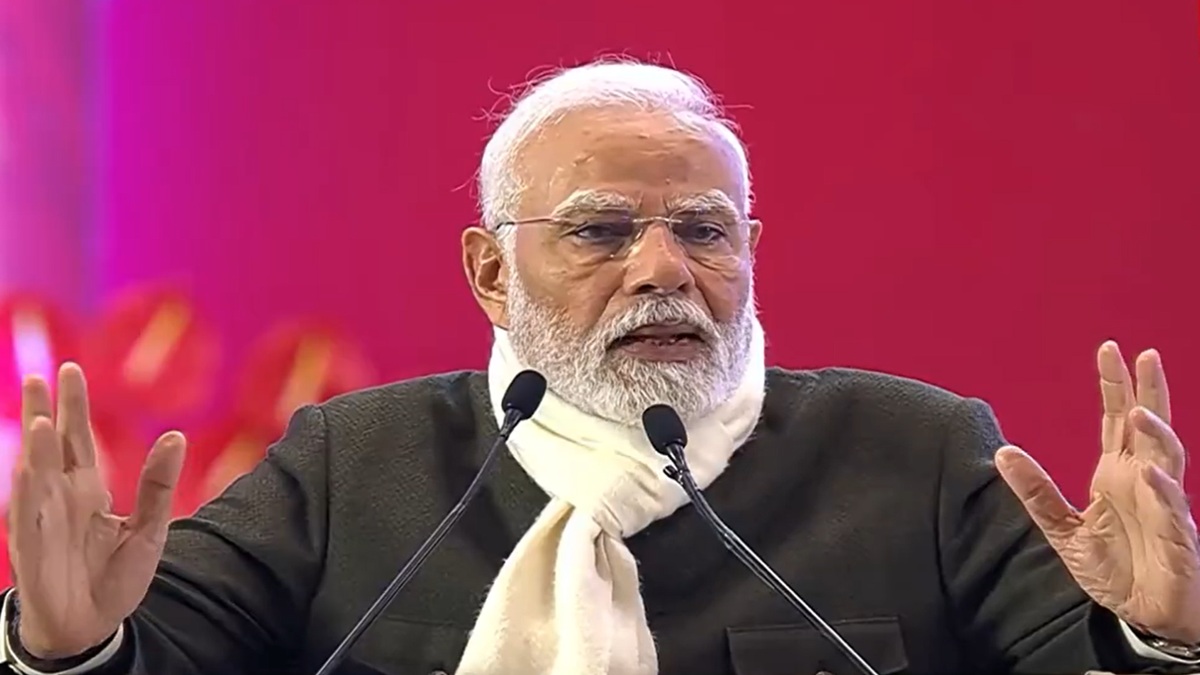 PM Modi Addresses India Steel 2025: Paving the Way for a Steel-Strong India
PM Modi Addresses India Steel 2025: Paving the Way for a Steel-Strong India Pahalgam Terror Attack 2025: About Pahalgam and India’s 5-Point Action Plan Against Pakistan
Pahalgam Terror Attack 2025: About Pahalgam and India’s 5-Point Action Plan Against Pakistan Pahalgam Terror Attack: What happened and way ahead
Pahalgam Terror Attack: What happened and way ahead






